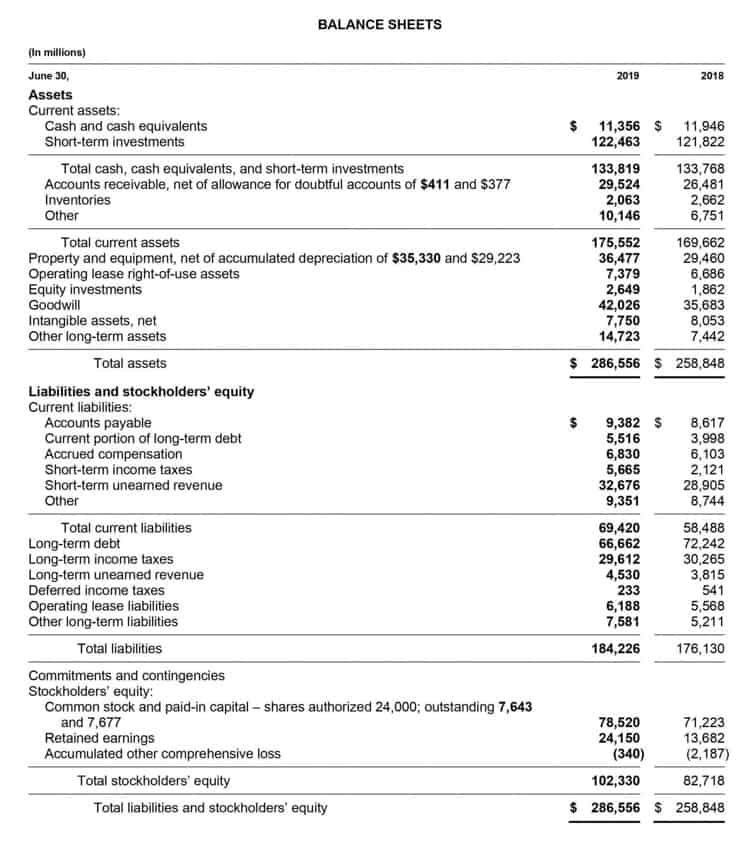Content

Take care if you are using money transfer apps to send and receive payments for your small business. Linking an app like Paypal or Cash App by Square Inc. to your credit card may be more expensive than you think. That’s because, since https://www.bookstime.com/ September 2019, money transfers through these apps have been coded as cash-equivalent transactions. The classification enables your credit card company to charge a cash advance fee for payments made using a credit card on these apps.
- He is an expert in mortgages, career strategies and retirement planning.
- Investments in liquid securities, such as stocks, bonds, and derivatives, are not included in cash and equivalents.
- It is clear from the above discussion that cash equivalents are an integral part of the company’s current asset as well as working capital.
- We believe by providing tools and education we can help people optimize their finances to regain control of their future.
- To be classified as a cash equivalent, an item must be unrestricted, so that it is available for immediate use.
The shareholders make gain from such holdings in the form of returns or increase in stock value. Is a short-term debt obligation backed by the Treasury Dept.of the U.S. government. T-bills generally have a maturity of less than one year and are sold in denominations of $1,000 up to a maximum purchase of $5 million. Banker’s AcceptanceBanker’s acceptance is a financial instrument guaranteed by the bank for the payments at a future date.
What is included in cash and cash equivalents?
A money market is an investment by the issuer in a basket of short-term, interest-bearing securities. Short-term investments and advances which can be quickly converted into cash. • Cash equivalents are a business’s short-term assets that can easily be converted into a predictable amount of cash.

This company will also receive a lower interest rate, which translates into higher profitability. Cash and cash equivalents is a term used in accounting that refers to the amount of cash and other short-term investments that a company has on hand at any given time. Cash equivalents are short-term, exceedingly liquid investments that are readily convertible to cash and have little volatility in value. For an investment to be classified as a cash equivalent, it must have a remaining maturity of three months or less from the date of acquisition.
What Are Cash Equivalents
Therefore, these assets remain highly liquid in which their benefits are expected to be received in the short-term. As opposed to other types of financial or investment vehicles with no determinable timeline or very long holding requirements, cash equivalents are not meant to be held for long. These are commercial paper, money market funds, government bonds, marketable securities, and Treasury bills. There are generally two different ways to report cash equivalents on thebalance sheet. Some companies state cash equivalents as a separate line item directly under cash on the face of the balance sheet. This allows investors and credits a look at what is actually in the company’s bank account and what are other liquid investments. Cash RatioCash Ratio is calculated by dividing the total cash and the cash equivalents of the company by total current liabilities.
The income provided by these funds is variable and typically lower than mutual funds that invest in longer-dated bonds and other fixed income investments. Offering a high what are cash and cash equivalents degree of safety and liquidity, they are best suited to investors who are focused on preserving their capital, have a short time horizon and a low risk tolerance.
Company
Cash and Cash Equivalentsmeans, as of a given date, the Company’s cash and cash equivalents as determined in accordance with U.S. Cash and Cash Equivalentsmeans cash and cash equivalents in accordance with the Accounting Principles.

To define cash and cash equivalents for external reporting in a manner that complies with Governmental Accounting Standards Board Statements. Cash and cash equivalents are normally reported as a single aggregated figure in the primary statement of financial position . TreasuryDirect is best used when you plan to hold your cash equivalents for an extended period of time. While the concepts discussed herein are intended to help business owners understand general accounting concepts, always speak with a CPA regarding your particular financial situation. The answer to certain tax and accounting issues is often highly dependent on the fact situation presented and your overall financial status.
What Is the Difference Between Cash and Cash Equivalents?
Most accounts receivable are paid within 15 to 90 days , which is the definition of a quick or current asset not a cash equivalent. A banker may accept accounts receivable as collateral on a loan, but it’s usually at a discount to the full value of the account. This is because on average 26% of invoices 3 months old are uncollectable, 70% of invoices 6 months old are uncollectable, and 90% of invoices 12 months old are considered uncollectable. Even at a discount, the risk profile of the customer on the other end of the receivable is largely unknown.
Is petty cash a cash equivalent?
Is Petty Cash a Cash Equivalent? No. Petty cash is actual cash money: bills and coins. Cash equivalents are highly liquid securities and other assets that can be easily converted into cash: money market funds, commercial paper, or short-term debt, like Treasury bills.
Most of the creditors give importance to cash ratio of the company, since it give them idea whether the entity is able to maintain stable cash balances in order to pay off their current debts as they come due. Quick ratio is liquidity indicator that defines current ratio by measuring the most liquid current assets in the company that are available to cover liabilities. Unlike to the current ratio, inventories and other assets that are difficult to convert into the cash are excluded from the calculation of quick ratio. A money market fund is a type of mutual fund that invests in high-quality, short-term debt instruments and cash equivalents. Cash is ownership of actual United States Dollars or other currencies, while cash equivalents are financial vehicles and investments that are incredibly easy to convert to cash. Cash equivalents are not the same as cash, though they have such low risk and high liquidity that a company can easily sell its cash equivalents for actual money.
Accounting Topics
Savers can choose their CD term (often ranging from one-month to five-years). Commercial papers are used by big companies to receive funds to answer short-term debt obligations like a corporations’ payroll. They are supported by issuing banks or companies that promise to fulfill and pay the face amount on the designated maturity date provided on the note. Having cash and cash equivalents on hand speaks to a company’s health, as it reflects the firm’s ability to pay its short-term debt. If you’re looking for the Venmo credit card cash advance fee, get in touch with your card issuer. Neither Venmo nor any other money transfer platform will have those details. Cash-equivalent transactions are, for the most part, regarded as cash advances, a type of transaction that includes ATM withdrawals and loading amounts onto gift cards and other prepaid cards.

They also assess an early withdrawal penalty that will reduce the amount of interest you will earn on the certificate if you withdraw the funds prior to the stated maturity dates. You purchase a certificate for a specific amount of time, which can be anywhere from 30 days to as long as 10 years. You can put money into a cash-equivalent account, and withdraw it quickly and for any purpose.
Cash equivalent definition
Anderson is CPA, doctor of accounting, and an accounting and finance professor who has been working in the accounting and finance industries for more than 20 years. Her expertise covers a wide range of accounting, corporate finance, taxes, lending, and personal finance areas. Jayne Thompson earned an LLB in Law and Business Administration from the University of Birmingham and an LLM in International Law from the University of East London. She practiced in various “big law” firms before launching a career as a business writer. Her articles have appeared on numerous business sites including Typefinder, Women in Business, Startwire and Indeed.com. As the consumer advice website Finder advises, you want to avoid cash advances whenever possible because of the cost implications. In addition, the court found that a promissory note is not necessarily a cash equivalent.




